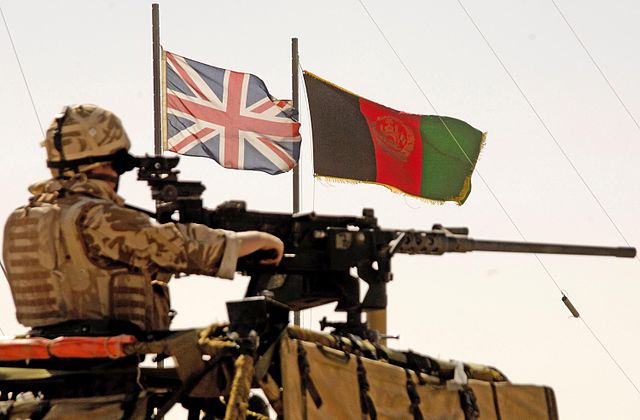
Photo Credit: Sean Clee
Was the British Army an effective force in bringing stability and order to Iraq’s Shiite heartland in Basra? Were British troops efficient and effective in confronting the insurgencies they faced in Afghanistan and Iraq? And, as a major Western military power, did they study their enemy?
The answer to each of the above questions is a resounding “No,” according to James Meek. Meek, in a new piece entitled “Worse than a Defeat” published in the London Review of Books, offers a scathing criticism of the British army’s involvements in Iraq and Afghanistan. His article puts on display what amounts to spectacular incompetence by the British army in the form of series of oversight, as well as a growing and embarrassing dependence on American military to save Britain’s fading reputation as a major Western military power. Drawing from his observations on the ground in Afghanistan as well as perspectives from recent works by several authors on Britain’s involvement in Iraq and Afghanistan, Meek shows how the British army’s involvement was under-funded, under-studied, and under-resourced.
Meek, who writes for the Guardian, underlines the human toll of Britain’s involvement in Iraq and Afghanistan both for the country and for the locals, arguing that “the extent of the military and political catastrophe it (the war) represents is hard to overstate. It was doomed to fail before it began, and fail it did, at a terrible cost in lives and money.”
A key part of Meek’s article is about what he describes as the British Army’s under-resourced operations in Afghanistan and the poor image it had among the Afghans, which dates back to the 18th century due to previous disastrous involvements there. This time, according to Meek, to bolster its fading image, the British military establishment tried to leverage its alliance with the U.S. military by “ingratiating itself with its US counterpart not for the sake of British interests but for the sake of British military prestige.” Meek goes on to say how the goal of obtaining American approval for the British Army eventually led senior American officers to doubt and later question the British Army’s claims about its ability in fighting a counterinsurgency war: “as the time approached when the first troops were due to land in Helmand, it became more and more evident that the British had failed to bring anything resembling order and justice to southern Iraq.”
While Britain claimed to have specific resources and expertise in fighting a counter-insurgency war, the country did not have a center for studying counter-insurgency until 2009, long after Australia and Canada had set up their counterinsurgency centers. As Alexander Alderson, a British colonel who served in Baghdad reveals to Meek, “sadly, by 2008, the UK was not just the junior coalition partner to the U.S, but the junior intellectual partner as well.”
You can read James Meek’s piece in London Review of Books in its entirety here.